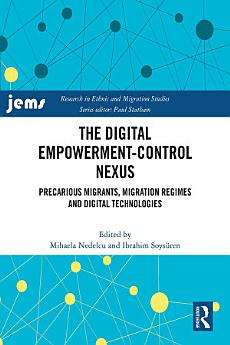The Digital Empowerment-Control Nexus: Precarious Migrants, Migration Regimes and Digital Technologies
About this ebook
Based on original empirical studies, the chapters bring contrasting and complementary insights into the use of digital technologies as agentic and/or surveillance tools in different national and supranational contexts (Turkey, Mexico, the United States, Switzerland, France, Romania, Greece and the European Union) and from different disciplinary perspectives (anthropology, sociology, geography, media studies, law and deportation studies). Using different theoretical lenses, they demonstrate the varying degrees of (dis)entanglement between individual and institutional practices, at micro and macro levels.
Helping readers to understand the ambivalent role of digital technologies in (forced) migration processes, The Digital Empowerment-Control Nexus can be used as a resource by students, researchers, practitioners and policymakers interested in digitally mediated migration practices and migration regimes. It was originally published as a special issue of the Journal of Ethnic and Migration Studies.
About the author
Mihaela Nedelcu is Titular Professor of Sociology at the University of Neuchâtel, Switzerland. Since her pioneering book Le migrant online (2009), she has developed her expertise in digital migration studies, focusing on transnational families, e-diasporas and e-borders.
Ibrahim Soysüren is a senior researcher at the University of Neuchâtel, Switzerland. He has conducted comparative research on the deportation of foreigners and the use of biometric databases and has published extensively on these topics as well as on migration processes.




